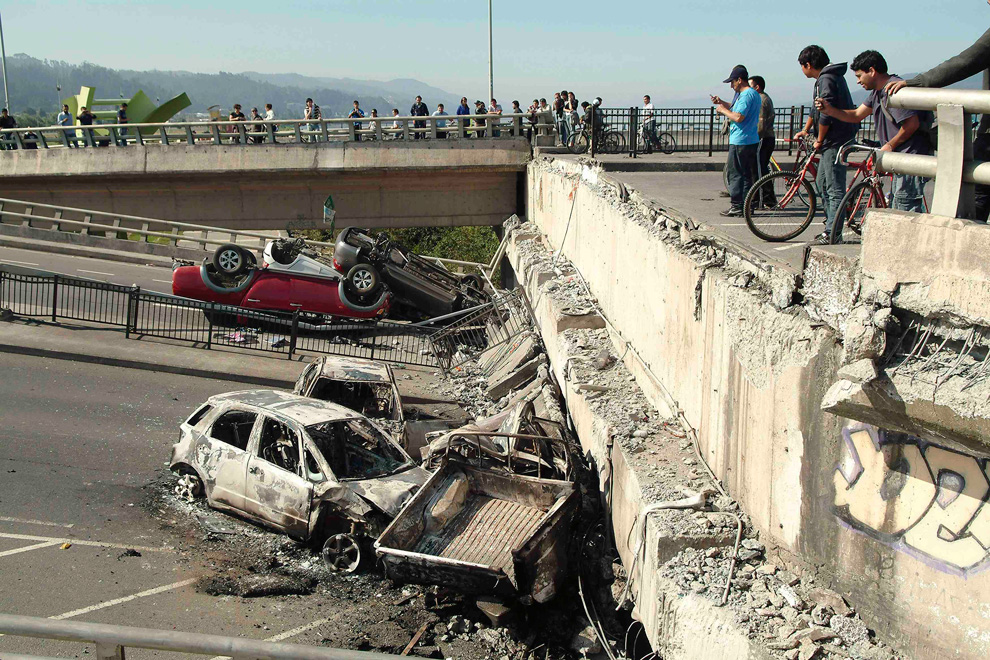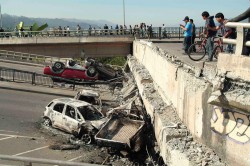Scientists Convicted of Manslaughter For Failing to Predict Earthquake

 An Italian court has sentenced seven scientists to six years in prison for failing to predict and warn residents of a deadly 2009 earthquake in the city of L’Aquila. They were charged with “inexact, incomplete and contradictory information” related to whether tremors weeks before the earthquake should have been grounds for evacuation. “Earthquakes cannot be predicted, and these scientists should not even have been on trial,” said Oxford University Earth Scientist, John Elliot. This is a dangerously anti-science precedent, even if it’s just in Italy.
An Italian court has sentenced seven scientists to six years in prison for failing to predict and warn residents of a deadly 2009 earthquake in the city of L’Aquila. They were charged with “inexact, incomplete and contradictory information” related to whether tremors weeks before the earthquake should have been grounds for evacuation. “Earthquakes cannot be predicted, and these scientists should not even have been on trial,” said Oxford University Earth Scientist, John Elliot. This is a dangerously anti-science precedent, even if it’s just in Italy.
The 6.3 magnitude earthquake killed 309 and left the city in chaos. Officials and victims looking for someone to blame for their emotional and financial distress chose these seven scientists, who allegedly gave “inexact, incomplete, and contradictory” information about how dangerous the tremors were. Prosecutors called their warnings falsely reassuring. The defense argued that they can’t predict major earthquakes with complete accuracy.
Many are worried that the conviction, which still requires another level of appeals under Italian law, will instill fear in other scientists. “If the scientific community is to be penalized for making predictions that turn out to be incorrect, or for not accurately predicting an event that subsequently occurs, then scientific endeavor will be restricted to certainties only and the benefits that are associated with findings from medicine to physics will be stalled,” said Malcolm Sperrin, director of medical physics at the UK’s Royal Berkshire Hospital.
Witnesses say the scientific judgement was negligent, causing people to stay when their intuition told them to leave. “I remember the fear in her voice,” said Guido Fioravanti, on his mother’s tragic decision to stay. “On other occasions they would have fled but that night, with my father, they repeated to themselves what the risk commission had said. And they stayed.”
The pending conviction could have very dangerous consequences for the scientific community. What do you think of the decision?




